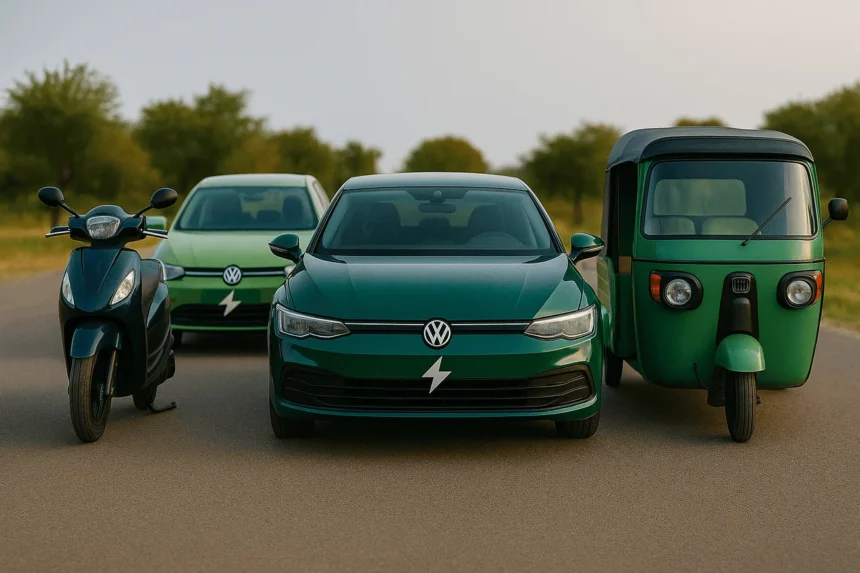Electric vehicle adoption in Pakistan is progressing much slower than in other countries, despite global momentum. Understanding the reasons behind slow electric vehicle adoption in Pakistan is crucial for policymakers, businesses, and consumers who want to see a cleaner, more sustainable future.
If you’re curious about the most affordable options, check out our review of Pakistan’s cheapest electric car, the Inverex Xio EV.
Price Sensitivity and Resale Concerns
One of the biggest barriers to the electric vehicle adoption in Pakistan is its high upfront cost. Most EVs are imported which makes them more expensive due to taxes and duties. According to PakWheels, a mid-range electric car like MG ZS EV costs over PKR 10 million while electric bikes start at PKR 300,000. Additionally, the lack of a strong resale market for EVs makes buyers hesitant as cars are often seen as investments in Pakistan.
For those seeking more accessible options, our guide to budget friendly electric cars in Pakistan for 2025 offers a comprehensive look at upcoming models and price trends.
Limited Charging Infrastructure
A major hurdle for electric vehicle adoption in Pakistan is the lack of charging stations. Unlike countries such as UK, USA, Canada having widespread EV infrastructure whereas most Pakistani cities have only a handful of public chargers. Rural areas are even less equipped that makes long distance travel very risky for EV owners. So, the fear of being stranded without charging options discourages many potential buyers.

Pakistan’s ongoing electricity crisis is another key reason for slow electric vehicle adoption in Pakistan. Frequent load-shedding and voltage fluctuations make EV charging very unreliable. That’s why many of owners worry that their vehicles won’t be fully charged when needed, further eroding confidence in EV technology.
Limited EV Options and Local Manufacturing
Electric vehicle adoption in Pakistan is also hampered by a lack of locally manufactured models. Most available EVs are only imported ones, which means higher prices and limited after-sales support. However a few brands are making strides in the local market:

When it comes to electric cars, the Inverex Xio is often marketed as Pakistan’s cheapest “local” electric car. However, the reality is that the Inverex Xio is primarily assembled in Pakistan from imported Chinese kits, rather than being fully manufactured locally. This approach helps reduce costs but does not yet represent a fully indigenous automotive industry.
The Future of Electric Vehicle Adoption in Pakistan
The outlook for electric vehicle adoption in Pakistan is improving gradually and government’s New Energy Vehicle Policy of 2025 aims to accelerate growth of EV by offering subsidies for electric bikes and rickshaws by reducing import duties and promoting local manufacturing. In this policy, government targets 30% of all vehicles to be electric by 2030 with further expansion planned by 2040.
If you want to explore global comparisons and policy insights, check out the IEA Global EV Outlook for authoritative international data.
Key Policy Highlights
Private Sector and Industry Efforts
According to Dawn news, private sector of Pakistan is playing a vital role in Electric Vehicle adoption in Pakistan as Companies like Sazgar and MG are introducing new EV models while NEPRA and K-Electric are investing in charging infrastructure even though Banks are now offering EV-friendly loans and startups are making electric bikes more accessible. These efforts are essential to building trust and accelerating adoption.

Countries like China and India are seeing millions of new EVs on the road each year with electric vehicle adoption and Pakistan is still in its early stages. In 2025, Pakistan is projected to sell around 10,000 EVs as compared to India’s 2 million and China’s 14 million. The next few years will be critical as the country works to catch up with global trends and build a sustainable transport future.
Frequently Asked Questions
Why is electric vehicle adoption in Pakistan slow?
High prices, limited charging infrastructure, electricity issues and late government incentives are the main reasons for slow electric vehicle adoption in Pakistan.
What does the 2025 EV policy offer?
The policy provides subsidies, reduced import duties, support for local manufacturing and aims for 30% electric vehicle adoption in Pakistan by 2030.
How does Pakistan compare to India and China in EV sales?
Electric vehicle adoption in Pakistan is much lower, with only 10,000 projected sales in 2025 versus millions in India and China.
Is there hope for growth in electric vehicle adoption in Pakistan?
Yes, with new policies and private sector involvement, electric vehicle adoption in Pakistan is expected to accelerate in the coming years.







